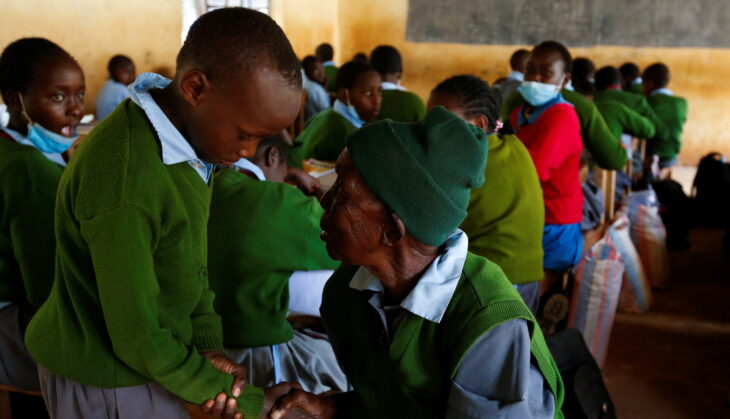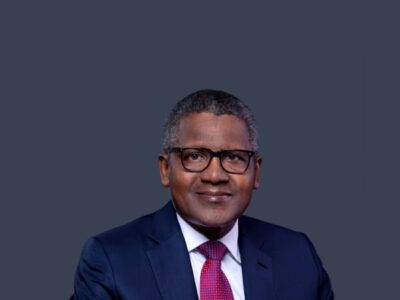
If you’re reading this today, it is most likely because when you were in primary school, a committed teacher ensured that you learned how to read at the right age. Foundational literacy and numeracy skills, the ability to read and do basic mathematics by the age of ten, are the building blocks of all future learning.
Primary school enrolment in sub-Saharan Africa is the highest it’s ever been – an astounding 99.9%. This is evidence that with enough political will and by taking the right actions, it is possible to successfully deliver reforms. While this has laid an excellent foundation, access alone has not guaranteed that children are learning in schools. It is now time for us to turn our attention to the quality of education. Nine in ten children in Africa cannot read with comprehension by the age of 10. This phenomenon is called learning poverty.
By the age of 10, a child in school should be able to read and do basic maths, the foundational skills necessary for further learning and the development of advanced skills.
Without these basic skills, many African children are unprepared for the learning that comes next and thus are not guaranteed the ability to meaningfully learn in secondary or any further education. Additionally, they are not guaranteed an opportunity for productive employment which would result in upward social mobility for individuals, communities, countries and the continent at large. Focusing on the problems of the now, should not make us myopic to the crisis that awaits in the future.
I attribute my passion for basic education to my parents who placed emphasis on the importance of learning how to read, write and do basic arithmetic as a strong foundation for the rest of our lives.
They also used their modest resources to provide scholarships for less privileged children in our community. Their commitment was predicated on their knowledge that education is an investment with high returns to individuals and communities.
What needs to be done
With this background, it was evident when I became Nigeria’s minister of education that there needed to be a concerted push to increase equitable access to basic education and improve learning outcomes at scale. With the support of an industrial team and the collaboration of relevant stakeholders, we succeeded in getting more than half a million out-of-school children into classrooms within one academic session and improved learning by retraining teachers on effective pedagogy.
Investing in foundational literacy and numeracy skills is not only about harnessing the potential of Africa’s over one billion people, but is also about ensuring that Africa’s people are not deprived of the opportunity to fully determine for themselves what their lives could become. Poor learning in schools is a major contributor to human capital deficits, and even with high levels of enrolment, it undermines efforts to develop our continent.
Covid-19 adds an additional complication to this challenge. Its impact on children’s learning, as with almost every developmental indicator, has been an erosion of the established gains in existing systems.
In the long-term, it is projected that this generation of children and young people could lose $10trn of future earnings equivalent to almost 10% of global GDP.
It is important that we secure the future by acting now, and ensure that the nine in ten children catch up and are equipped to live healthy and productive lives which grant them agency. In Nigeria’s Edo state, at the peak of the pandemic, teachers were able to prevent learning losses by delivering lessons through interactive quizzes and even via mobile phones. This work was supported by the UNICEF Accelerator programme and state governor, Godwin Obaseki, confirmed that 7,000 WhatsApp classrooms were created by teachers to ensure children kept learning.
Government cooperation
At this juncture, it is important to note that there can be no improvement in learning outcomes without political will. More proactiveness from high-level leadership is required to secure funding for learning interventions. This can be difficult given there are competing issues vying for their attention from across the socio-economic spectrum, in this instance, there can be a reallocation of existing resources to focus on foundational learning. Furthermore, policymakers can produce significant advances across a variety of societal challenges, by targeting inequities in education.
By looking at the evidence of what works with a group of some of the foremost leaders of Africa, Human Capital Africa – an organisation committed to ensuring that foundational literacy and numeracy remains a priority for governments in sub-Saharan Africa – was founded. And we have launched a Call to Action, imploring leaders to act and improve learning outcomes for children. Focusing on learning quality is the first step, next we must be able to measure and monitor performance towards the achievement of our goal.
This gives the opportunity to course-correct early on when remediation is still possible. Next, there is a need to increase technical and implementation capacity around improving early grade reading and maths. Governments do not need to walk this relatively uncharted path alone. Across the continent, there are organisations already making strides to improve learning outcomes, an approach that harnesses the depth and breadth of government resources and the expertise of technical partners is the best bet for our set agenda.
Collaborations are possible with organizations like the PAL Network, which conducts education policy gap analyses, administers Citizen-Led Assessments to assess levels of learning, and deploys action interventions and learning camps to support children.
Equally, UNESCO’s Global Education Monitoring Report (GEMR) works with national education ministries to produce a report that measures and monitors progress on Sustainable Development Goal (SDG) 4 on education, at the end of this process countries have a resource to support policymaking and leverage the GEMR’s peer learning and accountability mechanism to further their progress.
Bottom line
Education systems must centre children’s learning and support teachers as the facilitators of learning to achieve the desired outcomes. Human Capital Africa is committed to improving learning on the continent and we are prepared to support policymakers on their journeys to do the same. We implore country leaders to step up to acknowledge the magnitude of the crisis and take necessary steps to secure the future of this generation and those to come. There is no shortage of technical support once African policymakers decide to tackle the learning crisis head-on, our children and our countries will indeed be better for it.
